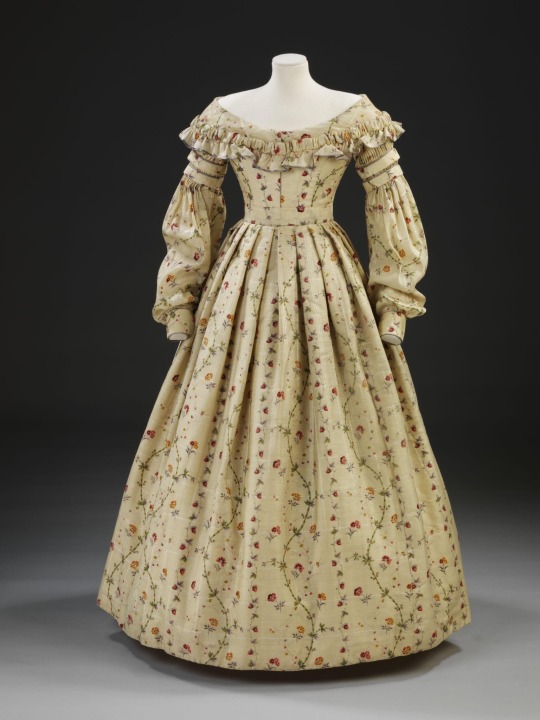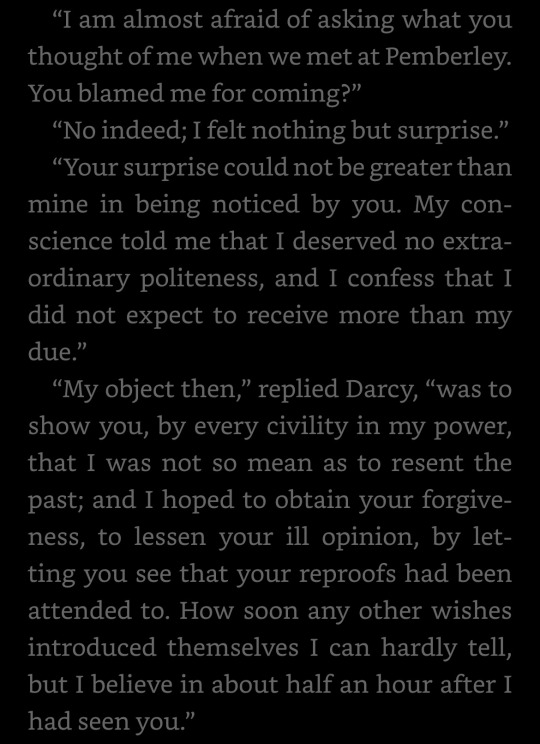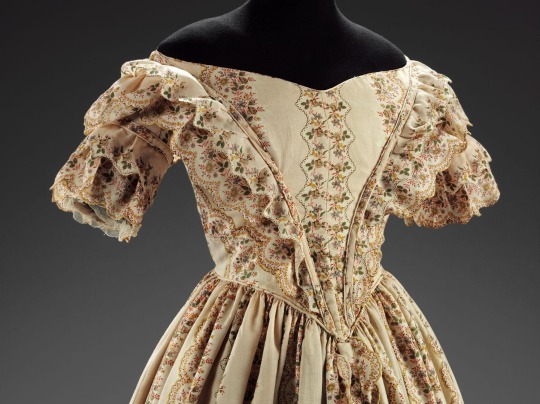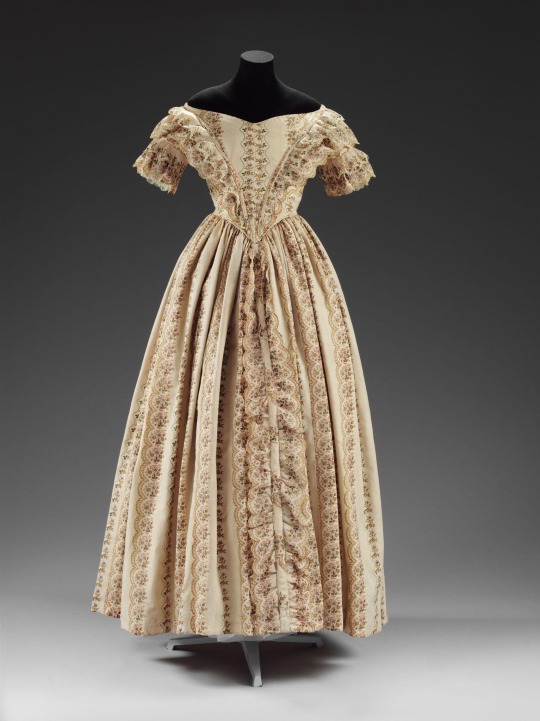Text

nap on a patch of dandelions sounds great
print! | kofi ♡
26K notes
·
View notes
Text









Various stars & moon details from my gouache paintings 🌙✨
54K notes
·
View notes
Text

The Kansas Newspaper Union, Topeka, November 26, 1887
6K notes
·
View notes
Text

The deadpan. The bafflement. The fluster. The complete ignorance and change of topic- hey wait a second
1K notes
·
View notes
Text
Mr. Fitzwilliam Darcy being like, "I am 100% committed to respecting your 'no', but I heard you wouldn't promise my aunt not to marry me so I had to come and check just one (1) more time."
4K notes
·
View notes
Text
There's 5 things a Christian loves to see in a story: unconditional love, self-sacrifice, and of course, the 3 r's, redemption, reconciliation, and resurrection.
773 notes
·
View notes
Text



Day Dress
c. 1837-1840
printed challis and lined with glazed cotton and linen from Great Britain
Victoria and Albert Museum
#I have been obsessed with this dress for years and I don't know why#maybe i know in my soul if my life was transplanted to this time and place I would have worn it?#victorian fashion
1K notes
·
View notes
Text
Taking this out of Faith's notes because it's not fair to clog them up but seriously I feel like Tilney is very often boiled down to charming man who knows about muslin but to me honestly the people who are like "hmm seems like a fake flakey guy" are more right because it's definitely got this underlying cynicism to it which put together with the charm gives a fairly calculating feel. But to me it's like! Imagine your mother dies and your father didn't murder her but when you describe it later you say he as good as killed her by his slow cruelty and disinterest, and you're left with your sister, your older brother who is also AWFUL, and that same father in an old obscure abbey. What do you do? a. you stop really liking or trusting many people because 2/3 of the people you're meant to like and trust are awful, and b. you get Really Good at being liked. Because that's going to get you out of that house, and it's also going to, as much as possible, save you when you are still in that house. It's not the ONLY response to an essentially emotionally abusive situation like that, but it is a clear response.
And this also explains why Tilney doesn't seem to take things seriously very often, because making a joke out of everything is also a tried and true way of surviving a life like that. If you laugh at it then it won't hurt you so he laughs at his family and he laughs at the shitty parts of society and at the Thorpes and at everything.
Except Catherine then turns up and she's not calculated, she's the opposite of calculated. She's charming because she's so honest, she runs up and pours out how sorry she is that she didn't make the walk and how much she wanted to and had been whisked away, and she tells it without an inch of propriety and it's impossible to keep being angry with her. She's silly but she's also inexplicable clear-eyed, she sees the unhappiness at Northanger so clearly even if she imagines the source wrong! That's always been so important to me as part of her character that she was RIGHT there WAS something rotten in the state of General Tilney!!! It just wasn't Literal Murder. And I think Tilney sees that and he loves that because it's so different from the twisted nature of his own past and upbringing, because it's true and honest and good and he still strives for those things (because even if his charmingness IS calculated, he still sees young women and their chaperones unhappy and abandoned and immediately steps in! he is still very much kind! I might speculate about how it's possible to live an identity for so long that it becomes true, but in this case that would just be speculation because we don't have enough information so I won't.) And then I think he does come to love Cathy properly with more time and all, but the original attraction I think is how straightforward she is.
And I KNOW this isn't the only interpretation of the characters but it's the one that makes Tilney make sense to me, he's too cynical and slightly bitter to truly be the perfectly kind charming man he makes himself out to be, but he genuinely cares too much to be a fraud. I think the complexities arise from the survival mechanisms he's created which make sense given his background, and how they intersect and interact with the rest of his nature and the outside world.
279 notes
·
View notes
Text
Review: Thaddeus of Warsaw (1803)
"Men who cannot ardently feel, cannot taste supreme happiness."
A bestseller in its day, Thaddeus of Warsaw is considered by some to be the first English historical novel, taking its plot from the very real Kościuszko Uprising in Poland against an invading Russia. It utilizes real events and real people, though I do have difficulty in labeling it a historical novel myself, when it takes place only about a decade before the story itself was written and published. (Kind of like someone writing a "historical novel" taking place about an event in 2014- it still seems too contemporary).
The story follows Thaddeus Sobieski, a Polish nobleman who finds himself a penniless refugee after a tragic defeat. The book opens with military-heavy scenes that, according to Devoney Looser in her biography on Jane Porter and her sister Maria (Sister Novelists), "a general had said, "No one could have described so well the horrors in Poland who had not been an eye-witness." Many couldn't believe a woman had written it."
Once Thaddeus reaches England, however, the plot becomes a little more familiar to the tropes of the time. The plot itself is complicated to explain fully, but involves a few sudden, dramatic deaths, multiple women falling in love with this "noble foreigner," misunderstandings that lead him to think he has been abandoned by a dear friend, money woes, swooning, and several unlikely connections that continue to stretch belief by the end.
It is not without its moments of enjoyment or insight, but as a modern reader -even one used to reading drier classics- it was not always easy to get through. The most difficult aspects for me, personally, are the overwrought emotion in both the prose and dialogue, and the way the plot points start stretching credulity like taffy.
Jane Porter crafted Thaddeus to be what she saw as a sort of ideal man: deeply sensitive and emotional, honorable, religious, and heroic (in the "literally running into a burning building to save children" vein of heroism).
From a social perspective, I found it interesting how Thaddeus's financial position was not much better than what you might find a young lady of time in; in fact, he actually resorts to doing the very same thing that Laura in Self-Control does: sell his paintings. He later becomes a language tutor for two wealthy young ladies, a job sent his way thanks to an older woman who has taken a motherly interest in him, Lady Tinemouth.
Speaking of Lady Tinemouth, she has one of the most dramatic backstories of anyone in the novel, as she is revealed to be the abandoned wife of a cruel man who basically left her for his mistress and then legally took their children from her, where he (and his mistress! the GALL) have raised them to hate her. Spoiler alert: we do find out later that her daughter never believed the lies against her mother, and the two are reunited on her mother's deathbed. The daughter, Lady Albina, ends up marring Thaddeus's best friend, Pembroke Somerset, who in the end turns out to be his younger half-brother. Thaddeus himself ends up marrying Pembroke's cousin, the lovely Mary Beaufort.
I'm starting to learn that that is the sort of drama you get when reading Georgian novels!
Over all, this is a pretty hefty tome of a book (it was originally published in four volumes rather than the usual three), but if you are brave enough, you can find a free copy on Project Gutenberg.
Wild fact is that apparently (according to Wikipedia) the towns of Warsaw, North Carolina and Pembroke, Kentucky get their name from this novel!
#book reviews#classic novels#british literature#Jane Porter#Thaddeus of Warsaw#regency era#19th century fiction
0 notes
Text

Elizabeth: When you saw me at Pemberley after I told you you were the last man in the world I’d ever be prevailed on to marry… were you angry?
Darcy: I was surprised. That took about (checks watch) thirty minutes to shake off. Then I wanted to marry you again.
470 notes
·
View notes
Text
Silver, ochre and blue silk brocade dress from 1822.

Fashion Museum Bath Twitter
297 notes
·
View notes
Text
life's too short to write for an imaginary critic that you fear will hate what you wrote
20K notes
·
View notes
Text
@genevamichaels
Psych is so good because you’ve got:
- Deeply weird guy masquerading as an even weirder guy
- His dad
- Deeply weird guy masquerading as a normal guy
- Feral girl with a thin veneer of normalcy
- Deeply weird guy who thinks he’s 100% normal
688 notes
·
View notes
Text
One of the Principles of Shipping I adhere to is a Good Ship will emphasize, rather than flatten, individual character's personalities.
The other Principle of Shipping is that a new romantic relationship will bring out new dynamics in the character's pre-existing relationships as well.
137 notes
·
View notes
Text
I've spent all afternoon thinking about the line from Wentworth's letter "you sink your voice, but I can distinguish the tones of that voice when they would be lost on others" and about how that really is the most important part of the letter. Yes "you pierce my soul" and "I have loved none but you" and "I offer myself to you again with a heart even more your own than when you almost broke it, eight years and a half ago" are all more swoon-worthy. But the whole point of Persuasion is how Anne suffers because none of her friends or family acknowledge her needs or anything she says. She is made small by everyone around her. She is persuadable because she has been stripped of her agency; not by the circumstances of her life, but because the people in her life have talked over and down to her so much that she has stopped resisting. She knows that she won't be heard, so she just stops speaking. But then Wentworth hears her voice! He hears her, sees her, and he loves her for who she is, not what he wants her to be. I think Jane Austen knew exactly what she was doing by including that line. It's so subtle in such a purposeful way.
Thanks for coming to my ted talk
809 notes
·
View notes
Text



English Dress
c. 1840-1845
Victoria and Albert Museum
428 notes
·
View notes









